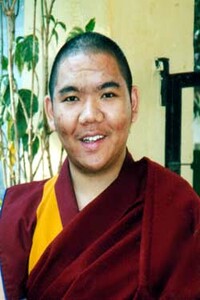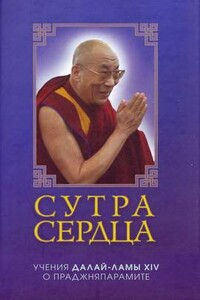Mastering the Core Teachings of Buddha. An Unusually Hardcore Dharma Book | страница 83
Some may readily give us extensive advice, and some just listen and nod. Some seem the living embodiment of love, and others may piss us off on a regular basis. Some teachers may instantly click with us, while others just leave us cold. Some teachers may be willing to teach us, and some may not.
So far as I can tell, none of these are related in any way to their meditation ability or the depths of their understanding. That is, don’t judge a meditation teacher by their cover. What is important is that their style and personality inspire us to practice well, to live the life we want to live, to find what it is we wish to find, to understand what we wish to understand. Some of us may wander for a long time before we find a good fit. Some of us will turn to books for guidance, reading and practicing without the advantages or hassles of teachers. Some of us may seem to click with a practice or teacher, try to follow it for years and yet get nowhere. Others seem to fly regardless. One of the most interesting things about reality is that we get to test it out. One way or another, we will get to see what works for us and what doesn’t, what happens when 80
Practical Meditation Considerations
we do certain practices or follow the advice of certain teachers, as well as what happens when we don’t.
Another thing about teachers is that they only know what they know.
If we use the scopes of the Three Trainings to examine this, we may find that some teachers may have a good grasp of some of these scopes and not have a good grasp of the others. In fact, mastery in any area guarantees nothing about mastery of the others. It is worth being realistic about this fact, and so I will go on and on about this later.
Also, when we interact with teachers, we may wish to also consider which of their bodies of knowledge we wish to draw on, i.e. which of the Three Trainings we want help with. In fact, I think that it is very important to be clear about this explicitly, so that when we go in to talk with a teacher, we can ask questions from the correct conceptual framework and also fit their advice back into the correct framework. If we ask a teacher about how to attain to some high state and they mention tuning into boundless joy, and we then try to do this when driving to work and crash into the rear end of the car of some poor commuter, we have not followed their advice properly.
Similarly, we may wish to explicitly ask our teachers if they are skilled in the aspect of the specific training we are interested in mastering and also to what level. While you cannot always trust them to tell the truth, either through their own self-deception or the desire to fool you, if they do say something like, “No, I don’t know enough to speak on that level, as my own abilities are not that strong yet,” then at least you know to seek advice elsewhere. I have much more respect for a teacher who once told me that he didn’t feel qualified to teach me than for the numerous teachers who were not qualified to teach me who either didn’t realize this or tried to pretend otherwise.


